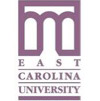
Mission
The Columbia Consortium for Risk Management generates and disseminates cutting-edge scientific information about the prediction and management of climate and other natural hazards, in combination with advances in risk management and financial engineering. CCRM goes beyond traditional areas of actuarial risks to include emerging types of risks where traditional actuarial methods fail, such as financial risks, risks due to political instability, market risks, company-specific risks, catastrophic reinsurance risks, and risks associated with new technologies.
The Consortium is directed by Graciela Chichilnisky, Professor of Economics and Statistics, who has developed a landmark approach to the foundation of statistics, incorporating catastrophic risks–based on a new axiomatic approach that extends the classical treatment to allow more realistic treatment of rare but important events. Drawing on Columbia University’s data and research in climate prediction and natural hazards, CCRM specializes in the prediction and management of complex and chaotic systems, securitization of insurance risks, fractal statistics, decision theory under uncertainty, financial engineering and stochastic analysis.
The Consortium brings together leading researchers from within Columbia University and from around the world, regardless of institutional boundaries, to manage existing and emerging risks.

The Challenge
Over the past decade there has been an increased awareness of risks for which actuarial data quickly lose their validity due to rapid change in both natural and economic environments. These risks are exemplified by market risks in global markets, risks associated with natural catastrophes and new technologies, business interruption risks and climate variability such as El Nino events, and global climate change. These risks have a more complex structure and are less understood potentially more dangerous than traditional types of risk.
To face this challenge, new technologies are needed, including: new mathematical and statistical approaches for evaluating and managing risk, new tools involving scientific and financial information for decision making under uncertainty, and new financial instruments including securitization and pricing techniques for hedging risks. CCRM has been created to address this challenge.
The Consortium is unique in combining the latest scientific knowledge of the prediction and management of climate and other natural hazards, with cutting-edge research in financial engineering and the mathematics of risk. Its knowledge is leading to new instruments and governmental policies for managing natural hazards.

Commercial Spin-Offs
Spin-off corporations are run in parallel with the Consortium to provide for the development and marketing of operational products resulting from research conducted at the Consortium. These corporations also provide a vehicle for proprietary work (without limitations) with individual corporate sponsors on special projects. Columbia University is a leader among U.S. universities in commercializing its knowledge, with annual income of $86 million from its licenses.
Cooperating Institutions













